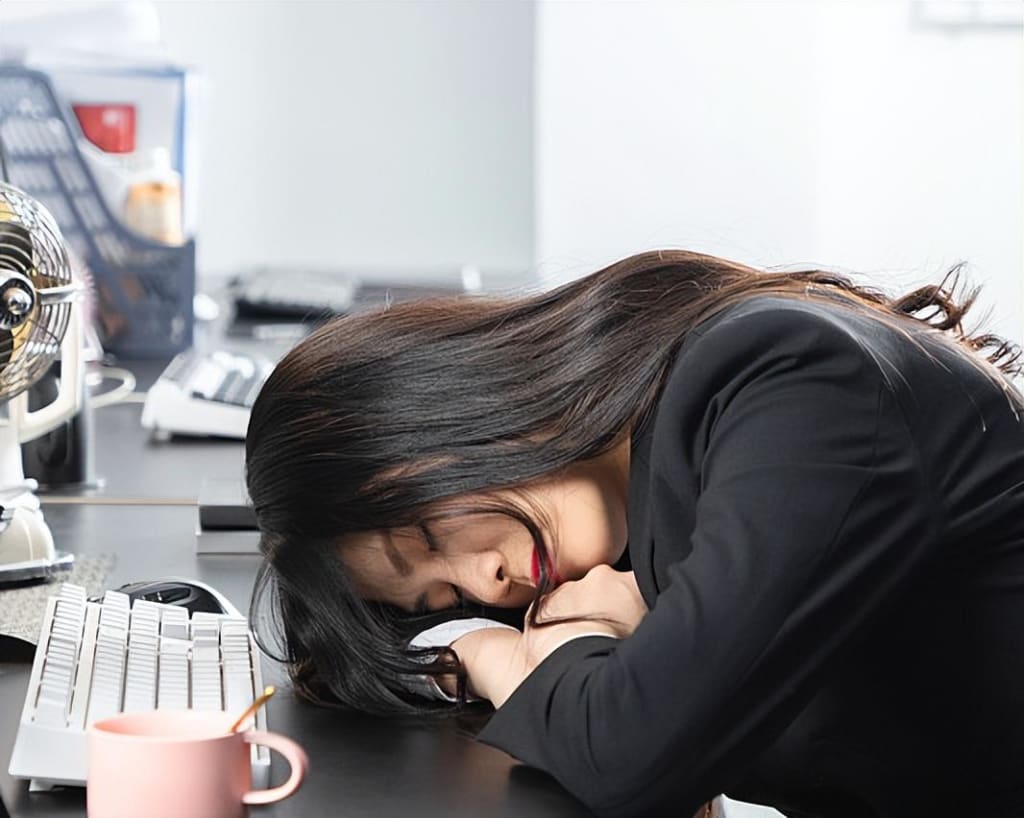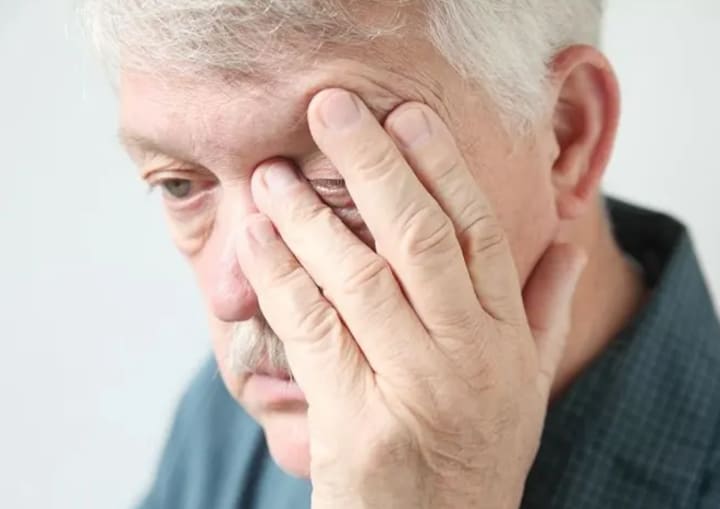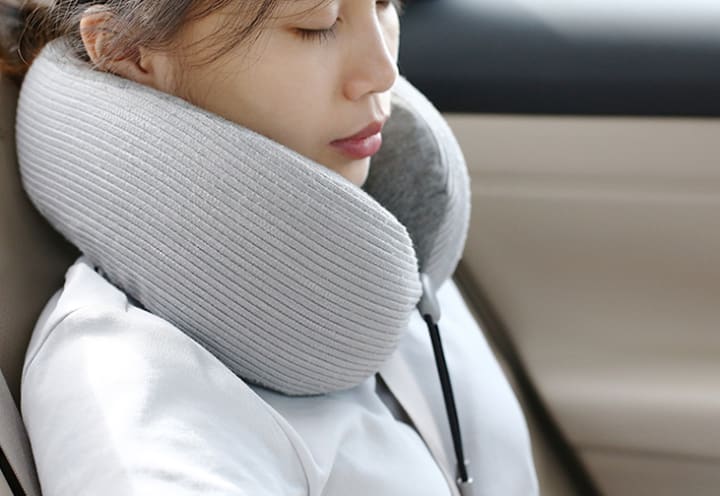Why the longer you nap, the more tired your body is?
What are the benefits of a long nap?

"You nap so long every day, why do you still look so tired?"
A colleague looked at Ms. Zhao, who had just woken up from a nap and couldn't help but ask. Ms. Zhao every day will nap for 50-60 minutes, but after waking up not only more sleepy, but her body is also very sore and soft.
Ms. Zhao is very confused, originally napping is to be able to better put their full attention to work in the afternoon, but instead, they sleep more and more tired. So what's going on here?
Why nap for a long time will still feel tired?
For most people to relieve a morning of work fatigue will be appropriate to nap, but some people sleep for more than half an hour is not as good as state sleep for ten minutes. Isn't it true that the longer you sleep, the more you can recover?
When sleeping for more than 30 minutes, the body will gradually enter a state of deep sleep. Once this time ends sleep, the cerebral cortex has not yet recovered, capillaries have not yet opened, there will be a short period of insufficient blood supply, and it will feel very sleepy. Those who wake up at this time will feel very drowsy and weak, and therefore increasingly tired.

In 2020, the European Cardiovascular Society published a study that long naps increase the risk of death by 30% and cardiovascular disease by 34%. [1]
A study on napping and the risk of sudden heart failure was published in the JAHA. The study showed that people who took long naps had a 1.73 times greater risk of heart failure than those who took short naps. The entire study divided the length of naps taken each day into three groups - 30 minutes or less, 30-60 minutes, and more than 60 minutes - and showed that long naps were more likely to lead to heart failure risk. [1]
A team of researchers from Guangzhou Medical University in China had also done tests on napping and the risk of death and the risk of heart blood disease. The study showed that people who napped for more than an hour had a higher risk of disease than those who did not nap; if the nap length was less than an hour, there was no increased risk of disease; naps that were less than 30-40 minutes long had some benefit to the heart.
For the length of the nap affects health, most countries have done similar related trials, and have shown a long nap time is too long, there will be a certain risk to physical and mental health. [3]
Therefore it is not the longer you sleep the better, nor is there a longer nap time, the better the organism recovers. So can you still take a nap in life? How to nap is better?
How to nap is better? What are the benefits of long-term napping?
Although nap time is too long on the body and may have a bad effect, as long as enough to protect the length of sleep can effectively help the body's recovery.
Germany previously had a study, to protect the length of a six-minute nap, which can effectively improve brain memory. In addition, short sleep can properly relax the brain and eye fatigue, for the lunch break is relatively short to beat workers, and is a good way to rest.
In addition, if you take a 10-15 minute nap, can effectively help the body to recover, relieve fatigue, and work and study in the afternoon can be better put in.
If 20-30 minutes of nap length, this length for most people, is the best nap time. Not only can help the body to recover, but also can effectively ease the heart rate, improve the efficiency of work and study, and enhance memory. [3]
For people who do not sleep well at night or do not get enough sleep, you can take about 40 minutes to catch up on your sleep and reduce fatigue.
In short, the length of the nap is best not to exceed half an hour, so that the sleep time is beneficial to the human body.
And long-term napping, but also to prevent dementia, regular napping can improve the body's mental agility and reduce the risk of cognitive impairment. And, regular naps can strengthen their brain memory. But napping is not just a party to relieve fatigue, so in addition to the length of the nap, how to better protect the quality of naps?
How to better protect the quality of naps?
Some people tend to get sleepy when they are full, and then they will immediately go to sleep. But in fact, eating full-on sleep will cause indigestion, and long-term, it will increase the burden on the stomach and intestines. And sleep after eating may also lead to the insufficient blood supply to the brain, and will wake up dizzy and weak symptoms.
In addition, sleeping after a full meal may also cause the expansion of subcutaneous capillaries, which in turn leads to an increase in blood flow, and when blood enters the digestive tract and other parts, it will compete with the brain for blood, increasing the risk of cerebral thrombosis and endangering brain health.
For people who have just eaten a full meal, you can take a walk or stand for a moment to help the body digest.
In addition, when napping, try not to sleep on your stomach, too long will lead to cervical deformation, causing cervical spondylosis. Incorrect posture, there will also be hand numbness, arm numbness, and there may be a lack of oxygen supply to the brain. As the body is locally compressed for a long time, it will affect normal blood circulation and nerve conduction, so there will be numbness in the hands and arms.
If long-term, it may lead to localized nerve paralysis or facial deformation, and a prolonged lack of oxygen supply to the brain will also affect the brain's reaction speed. [3]

In addition, sleeping on your stomach will also make their eye compression, prolonged pressure caused by excessive pressure on the eye, there is transient blurred vision. Over time, vision will be impaired, causing enlargement of the eye or growth of the eye axis. It can also increase the incidence of glaucoma.
And will also compress their chest, affecting the normal functioning of the respiratory system. Therefore, during the lunch break is best to lie down to sleep, if the conditions are, the lunch break can use a U-shaped pillow leaning on the back of the chair for rest. If the lunch break can only sleep on their stomachs, you can use pillows or other soft items placed under their arms, or side face to sleep, to avoid pressure on the eyes and other parts of the body, effectively increasing the quality of napping.
As a result of sleep, the body's muscles become relaxed, blood vessels open, and the immune system is also reduced. You can protect the quality of napping by reducing external stimuli, such as reducing the stimulation of external lights and avoiding getting cold. Napping people can prepare earplugs according to their situation, creating a quieter place to help the body quickly into sleep.
After the nap, some people may not be able to react for a while, you can stand up and simply relax, or drink a glass of water to relieve the body's tiredness.
Napping is not required to fall asleep, some people are not very sleepy at noon, and the afternoon will not affect normal work and study. For such people, you can properly close your eyes and relax at noon, to relieve eye fatigue, and relax their brains, the body also has certain benefits.
Extended reading: a nap is not suitable for everyone
If it is insomnia, it is not recommended to take a nap, it is not easy to go to sleep at night, and napping will instead aggravate the symptoms of insomnia. For patients with insomnia is also not recommended for bedtime exercise, some people feel that exercise can be better to help sleep, but not so. Patients with insomnia should preferably exercise two hours before bedtime and should go to bed immediately when they feel like sleeping, without delay.
Second, for patients with low blood pressure is also not recommended nap, low blood pressure patients after a nap, the body's blood circulation will slow down, and waking up will be more weak and tired.
For people with circulatory system disorders, it is also not recommended to nap after meals. Especially for people with unhealthy cerebrovascular, napping after meals can easily aggravate the condition, this is because the digestive tract and other parts of the brain compete for blood after meals, inducing the risk of cerebrovascular attack. Therefore, the existence of blood circulation system disorders, it is best not to sleep immediately after meals, you can nap half an hour after meals, which can reduce the risk of disease attacks.
Similarly, for obese people, you can not nap directly after meals, so as not to affect intestinal absorption, it is best to walk for half an hour before napping.
Summarize
A regular nap for most people can slow down the body's tiredness, better help themselves in the afternoon work and study to maintain a good state. But it is best not too long, to avoid causing sleep dependence, affecting the mental state.






Comments
There are no comments for this story
Be the first to respond and start the conversation.